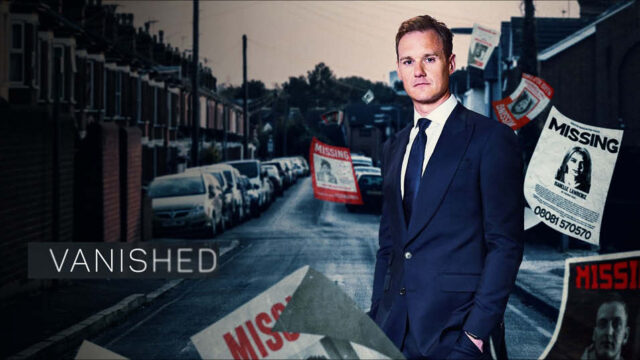True crime TV has been a booming genre of late, but it’s a genre that requires a strong ethical backbone to ensure the safety of both subjects and producers. Pippa Considine reports
Source: https://www.televisual.com/news/true-crime-the-only-way-is-ethics/
While no-one is suggesting that any programme making is a walk in the park, true crime has unusually intense demands on both contributors and crew.
“You’re dealing with stories that probably involve the most traumatic, the most upsetting, the worst moment in many people’s lives,” says Ian Rumsey, managing director of Content at ITN, which has produced a raft of true crime, including The Confession for Prime Video and Lost Boy: The Killing of James Bulger for Channel 5. “It ought to go without saying that it therefore requires an immense amount of sensitivity and trust and care.”
There’s been a boom in true crime production. And with the recent downturn leading commissioners to resist risk, the genre is one of the few that is still buoyant.
This time last year, producers from the UK and Ireland joined to form the Association of True Crime Producers, with founder members Avalon, FirstLook TV, ITN Productions, Monster Films, Peninsula Television, Phoenix Television, Rare TV, Revelation Films, Title Role and Woodcut Media.
United front
The Association has established best practice guidelines. It also runs webinars and there has been a session on vicarious trauma and future events including hearing from Victim Support. It also ran a session on compliance earlier this year, with compliance officers from several broadcasters.
Kate Beal, ceo of Woodcut Media and chair of the ATCP says, “we were trying to get producers to realise that they can be in partnership with compliance teams and networks much more than they are…They can be a resource for you.”
The association has meet-ups where members can exchange thoughts and ideas.
When John Balson, a producer on a number of true crime shows, died from suicide in May, the ATCP issued a statement saying it was “deeply saddened” by the news and that “mental health support, wellbeing and safeguarding issues are at the forefront of the association’s aims.” It asked indies and broadcasters to “recognise the additional burdens” that crews are carrying, “often dealing with gruesome details, traumatised families and friends, and working to tight budgets and deadlines.”
The ATCP guidelines have already been integrated into one broadcaster’s contract for true crime shows. “The guidelines are incredibly helpful,” says Beal. Not least in helping to negotiate lines in the budget for welfare of contributors and crew.
Woodcut Media’s slate includes true crime for Amazon Prime Video, Quest Red and Sky Crime. It has had a period this year when it was only making true crime.
There’s a duty of care to everyone involved in a true crime production, says Beal. “You have a victim in the centre of the circle and they you work your way out to see who is affected by it.”
At FirstLook, the indie behind series including UKTV’s Red Flag, Channel 5 and Netflix title My Lover My Killer, CI’s Meet, Marry, Murder and Discovery UK’s A Killer’s Mistake, the team is producing 100 hours of true crime in 2024.
“Most true crime deals with the subject of murder,” says Will Hanrahan, chief creative officer at FirstLook. “When somebody has been murdered it’s easy to forget their voice, their presence on the planet and instead focus on detectives, family members left behind…And of course we do attend to that and to witnesses and to justice – courts, barristers, solicitors. But the person we most need to represent is the person who has lost their life.”
Hanrahan says that FirstLook rejects more potential stories than it tells. One of the first questions is whether the victim would have wanted the story to be told. The next is ‘do the survivors want the story to be told?’
The biggest reason for not going ahead, Hanrahan says, is safeguarding. His team recently prepared for weeks to interview a girl aged under 20. “One of the team thought that the girl was vulnerable, so we decided to scrap the interview completely.” They were surprised to discover later that another production company had completed an extensive interview with her. “I was a little confused,” says Hanrahan.

Purpose driven
Which brings us to a central question: Why make these documentaries in the first place if so much is at stake?
“True crime has got to be purpose driven,” says Hanrahan. “It’s what separates us from other documentary forms.” An initial question the team asks when developing documentaries: Do we have a social purpose? “Where the industry can get it wrong is if you’re doing it just for the sake of ratings.”
FirstLook series Murder by Medic was seen as necessary scrutiny on the medical profession. Tackling the subject of domestic abuse, which is behind two murders each week in the UK, has been a subject that Hanrahan has prioritised. Five or six years ago no-one was commissioning documentaries about domestic abuse. Three years later and “Meet, Marry, Murder was very much in demand. You’ve got to respect the need for viewers to want to want to watch, to sometimes camouflage socially earnest journalism by making it viewer friendly. We have to do that to move the dial of social justice.”
At ITN, Rumsey enunciates a list of reasons behind going forward on a production: it can be in the public interest to tell the story, it might be that people should be alerted, it could be that it’s exploring a miscarriage of justice, or, for some, it’s a cathartic experience – telling their story to camera.
“Right from the very start, you question and you interrogate and you ask, you challenge,” says Rumsey. “Is it right to be telling this story?”

Guiding principles
Once a production is underway, the ATCP guidelines come on top of strict protocols provided by Ofcom and broadcasters’ own compliance.
Although streamers don’t have the same structure, FirstLook sticks to the same guidelines as it would for British channels. “We believe in the rules and regulations, we are not grudging adopters, we believe they are part of making good content.”
The protocols are an enshrinement of basic journalistic principles, to be fair, balanced and accurate. “We’ve got to fight for them, especially when you get broadcasters chasing ratings.”
ITN, in common with other production companies, also has its own protocols. “Duty of care is important across all documentaries,” says Rumsey, “But with true crime, what we are asking of people, it shouldn’t be underestimated. You’re asking people to share those incredible, often painful moments in their lives.”
ITN’s two-parter The Confession, for Prime Video, is about Patricia Hall who went missing and was never found. Her husband was accused of her murder, but found not guilty after the judge decided that evidence had been gained through a honey trap. “That was very difficult,” says Rumsey. “We had to maintain an absolute balance: we had to work and talk quite closely with the husband, who still lives under the cloud of suspicion, and allow him the same level of care that we did for Pat’s family, who obviously come at it from a completely different perspective… They both had a burning sense of injustice, but for very different reasons. And they both suffered loss, but in very different ways.”
The ITN team led the contributors through the production process and allowed them to view the programme before it went out, strictly for factual accuracy. “We were advising and helping them through incredibly strong protocols… What the impacts, the effects might be when the programme launched, advice on social media. And we offered continuing support after the programme had gone out, which is vital.”

The long haul
While the freelance nature of production makes it hard to keep personal connections after a show has transmitted, number 12 of the 13 ATCP guidelines stipulates: “Providing, where possible, a long-term contact point for contributors.”
Trust is central. Rumsey tells the story of a pitch against several other indies for a true crime story. Rather than play a showreel, ITN made a film asking half a dozen people -victims of crime or their families – to talk about their experience working with ITN.
“It’s not possible just to drop in…. step away and act as though that’s your only involvement, particularly in this day and age, with social media as it is,” says Rumsey. “The impact and the long-lasting effects of being involved in a true crime programme are potentially significant for contributors and also for staff.”
At FirstLook, the staff are predominantly women, reflecting the number of women at the heart of many of the stories that they tell and the majority of viewers. The indie pays a psychotherapist, who is a former commissioning editor, to come in and talk to staff. If a producer is finding a particular project too close to home, or is uncomfortable for other reasons, FirstLook will take them off a project.
ITN has its own wellbeing programme for contributors as well as crew. For ITN’s Channel 5 production Vanished, there was a wellbeing producer as a defined role in the budget. Despite downward pressure on budgets, broadcasters and platforms need to reflect the need for duty of care for staff and contributors in budgets. “Sometimes that’s quite a tricky conversation,” says Rumsey. “But you skimp on this at your peril…The alternative is not one which anyone would really want to contemplate.”